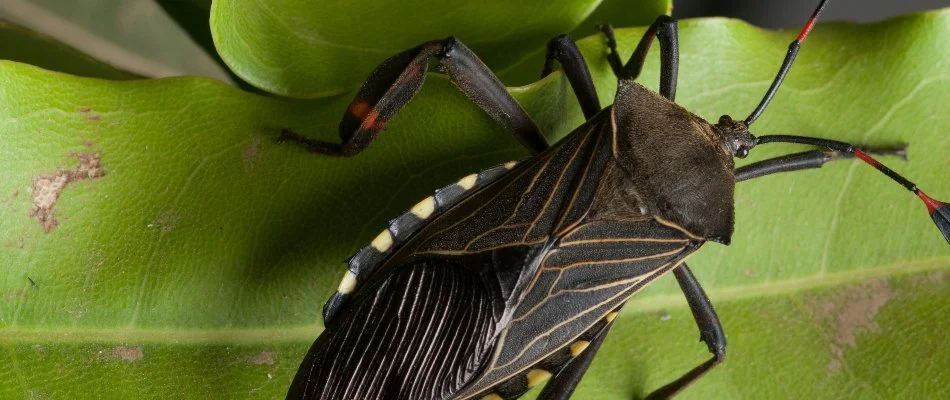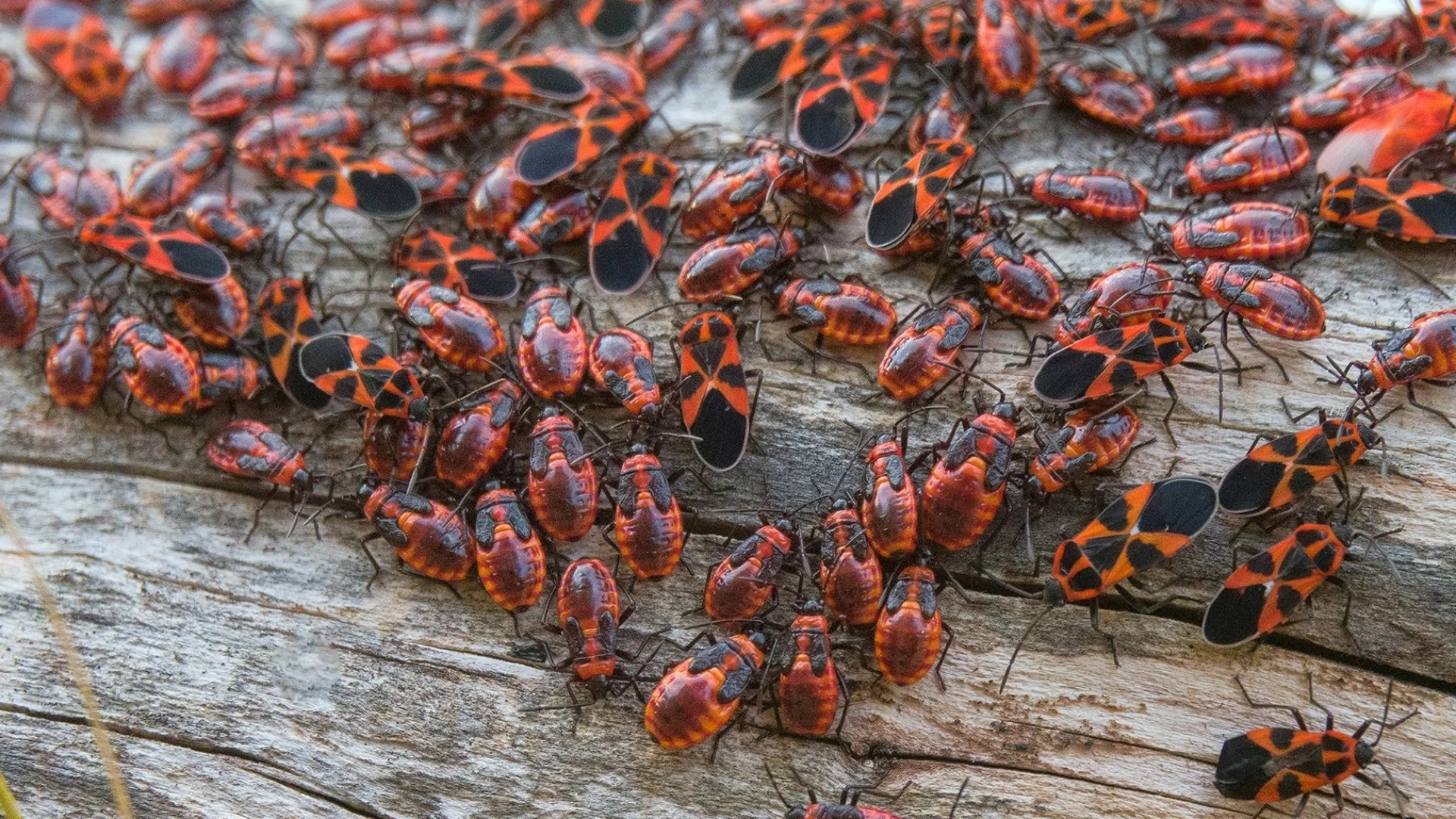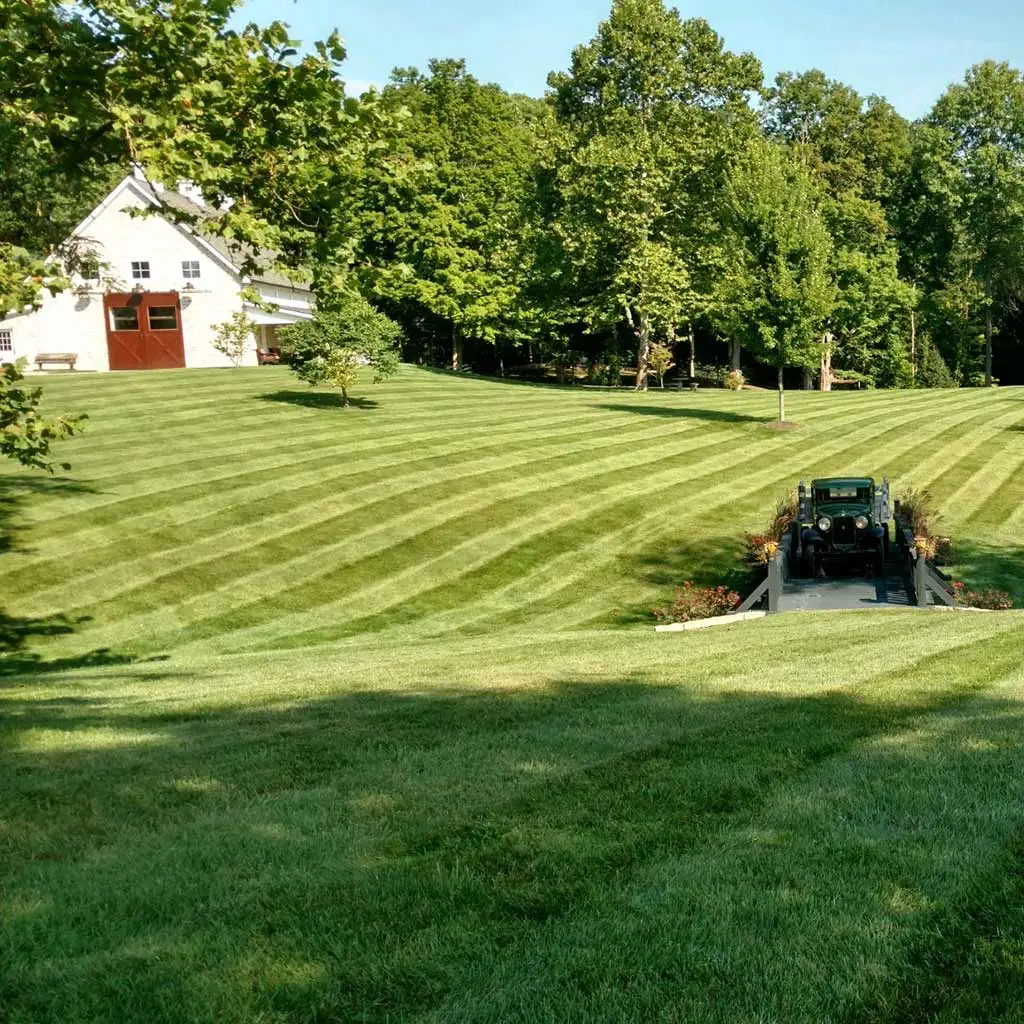Chinch bugs are a common problem for many lawns in Ohio, causing significant damage if left unchecked. Understanding what these pests are, when they become most active, and how to control them is essential for maintaining a healthy lawn. Chinch bugs are tiny pests that feed on the sap of grass blades and inject a toxin that disrupts water movement within your lawn. When left to their own devices, these pests will damage your lawn and cause patches of dead grass to spread quickly.
They love hot weather, which is why they are most active in the summer when temperatures are high and the humidity is low. The best way to protect your turf and keep chinch bugs from infesting is to invest in professional lawn insect control treatments.
What are chinch bugs, and what damage do they cause?

Chinch bugs are tiny but destructive insects that can infest lawns. These little pests are about the size of the tip of a pen! Adult chinch bugs are about 1/5 inch long with black bodies and white wings and an X pattern on the back. With their slender legs, these pests can easily move from one grass blade to another. The younger ones, called nymphs, are easy to spot with their bright red bodies.
The damage caused by chinch bugs is often mistaken for drought stress or lawn diseases. Chinch bugs feed on the sap of grass blades and inject a toxin that disrupts the movement of water within your lawn. This causes them to turn yellow or brown and die. The damage usually starts as small patches of dead grass and can quickly spread to other areas of the lawn. If left untreated, chinch bugs can cause significant damage to your lawn, leaving it weak and susceptible to other pests and diseases.
When do chinch bugs become most active?
Chinch bugs are most active during the summer months when temperatures are high and humidity is low. They are attracted to dry, sunny areas of the lawn and can quickly spread to other areas if left unchecked. Chinch bugs are also more active during drought conditions when the grass is already stressed and weakened.
It's important to note that chinch bugs can be active throughout the year in some regions, so it's essential to monitor your lawn for signs of infestation regularly. If you notice any signs of chinch bug damage, it's important to take action immediately to prevent further damage to your lawn.
What should you do about chinch bugs?
The best way to stop chinch bug infestations is to invest in professional treatments. A professional lawn care company can provide treatments that prevent chinch bugs from infesting your lawn and eliminate active infestations. Preventative chinch bug control treatments will place a protective shield on your turf that will keep these pests from ever becoming an issue. However, if you're dealing with chinch bugs already, lawn care pros can also treat your turf to stop these critters from causing more damage! Make sure you work with experts because they will know which product to use, when to apply, and where to target the treatment to achieve effective results.
Call us today to enroll in our chinch bug control service!
Chinch bugs can wreak havoc on your lawn when left unchecked. Here at Hoffmans Lawn & Fertilization, we offer a chinch bug control service to protect your lawn from these tiny pests. This service provides effective preventative treatments that will keep chinch bugs from invading and damaging your lawn, which are also effective in getting rid of active infestations!
For lasting protection, we will visit your property 5 times a year to administer the treatments and ensure there is no lapse in coverage! We offer this service to homes and businesses, along with HOAs, in Delaware, OH, and neighboring areas like Lewis Center and Powell. Call us today at (740) 318-5296 to enroll!




Comments (0)
Thanks for your comment!
Thanks for your feedback! Your comments have been successfully submitted! Please note, all comments require admin approval prior to display.
Error submitting comment!
There is a problem with your comment, please see below and try again.